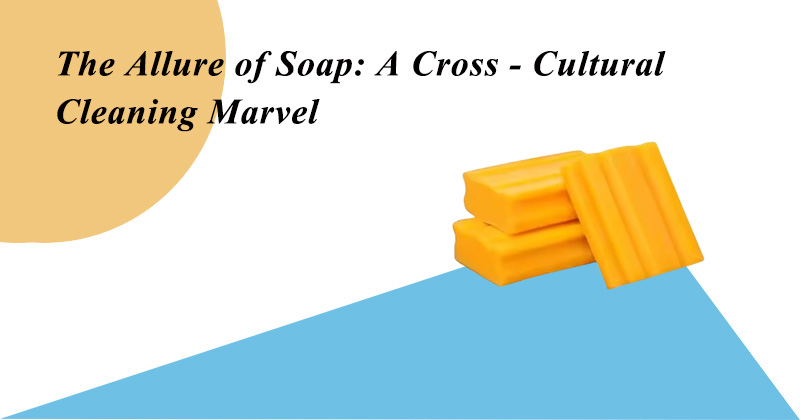Soap, a seemingly simple product, has a rich and fascinating history that spans cultures and centuries. It’s not just a tool for personal hygiene; it’s a cultural artifact, an innovation hub, and a symbol of cleanliness across the globe.
A Long – Standing History Rooted in Different Cultures
The origin of soap dates back thousands of years. Ancient Babylonians were among the first to make soap – like substances around 2800 BC. They combined fats with ashes, creating a basic form of cleaning agent. In ancient Egypt, soap was used not only for personal cleanliness but also in the mummification process. Egyptian papyri mention the use of a mixture of animal and vegetable oils with alkaline salts for various purposes.
Fast – forward to the Roman Empire, where soap became more widespread. Romans used soap for bathing, which was an integral part of their social and hygienic practices. Bathhouses were popular gathering places, and soap was essential for the cleansing rituals. As the Roman Empire expanded, so did the knowledge of soap – making, spreading to different regions of Europe.
In Asia, soap – making techniques also developed independently. In India, traditional soaps were made using natural ingredients like neem oil, which has antibacterial properties. These soaps were not only for cleaning but also for their medicinal benefits. In Japan, soap – making evolved with unique ingredients such as sake lees, giving the soap a distinct texture and fragrance.
Ingredients and Their Global Significance
The ingredients used in soap – making vary widely across different cultures. In the West, olive oil has long been a staple in soap – making, especially in Mediterranean countries. Olive oil – based soaps are known for their moisturizing properties, leaving the skin soft and smooth. Coconut oil, on the other hand, is popular in tropical regions. It produces a soap that lathers well and has a fresh, clean scent.
In African countries, shea butter is a common ingredient. Shea butter is rich in vitamins and fatty acids, making it excellent for nourishing the skin. It’s often used in traditional African soaps, which are highly valued for their ability to moisturize in dry climates. In the Middle East, dates and their by – products are sometimes incorporated into soap – making. Date syrup can add a natural sweetness and unique texture to the soap.
Soap in Modern – Day Global Markets
Today, soap is a multi – billion – dollar global industry. There are countless varieties available, from mass – produced commercial soaps to artisanal, handmade creations. In Western countries, there’s a growing trend towards natural and organic soaps. Consumers are more conscious about the ingredients they put on their skin, leading to an increase in soaps made with organic oils, essential oils, and plant – based additives.
In Asian markets, there’s a high demand for soaps with unique ingredients like green tea, rice bran, or pearl powder. These ingredients are believed to have specific skin – care benefits, such as antioxidant properties or skin – brightening effects. In emerging economies, affordable and effective soaps are in high demand to meet the growing need for personal hygiene products.
Soap – Making as a Cultural Activity
Soap – making has also become a popular hobby and small – business venture worldwide. In many communities, people gather for soap – making workshops, sharing traditional recipes and techniques. This not only preserves cultural heritage but also promotes creativity and entrepreneurship. For example, in some rural areas of Europe, local artisans make traditional soaps using age – old methods passed down through generations. In the United States, there’s a thriving community of small – scale soap – makers who experiment with different ingredients and scents, often drawing inspiration from global cultures.
In conclusion, soap is much more than a simple cleaning product. Its history, ingredients, and cultural significance make it a truly global phenomenon. Whether it’s used in a luxury spa in Paris, a traditional bathhouse in Tokyo, or a rural village in Africa, soap continues to play an important role in our lives, connecting us across cultures and generations.

